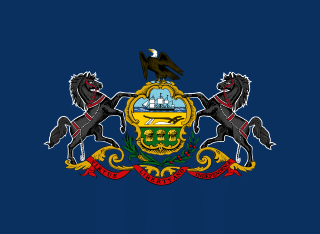
House Rules #
“Each standing committee, subcommittee or select committee to which a proposed bill, resolution or any matter is referred shall have full power and authority to study said bill, resolution or other matter before it, as such committee, shall determine is necessary to enable it to report properly to the House thereon. To this end, a standing committee, subcommittee, or select committee, may as hereinafter provided, conduct public hearings. No standing committee, subcommittee or select committee shall hold any public hearings without prior approval by the Speaker or the Majority Leader of the House. The Speaker or the Majority Leader of the House shall withhold approval of public hearings based only on budgetary consideration” (House Rule 50).
“INVESTIGATIONS
“Any standing committee, subcommittee or select committee, upon resolution introduced and approved by majority vote of the House, may be authorized and empowered to conduct hearings at any place in the Commonwealth to investigate any matter provided for in such resolution. When authorized by such a resolution, or when approved by the Speaker upon application by the standing committee, subcommittee or select committee authorized to conduct an investigation pursuant to this rule, such committee shall be empowered to issue subpoenas under the hand and seal of the chair thereof commanding any person to appear before it and answer questions touching matters properly being inquired into by the committee and produce such books, papers, records, accounts, reports, documents and data and information produced and stored by an electronic data processing system as the committee deems necessary. Such subpoenas may be served upon any person and shall have the force and effect of subpoenas issued out of the courts of this Commonwealth. Where any person willfully neglects or refuses to comply with any subpoena issued by the committee or refuses to testify before the committee on any matter regarding which the person may be lawfully interrogated, it shall be the duty of the committee to report such disobedience or refusal to the House of Representatives, and such person shall be subject to the penalties provided by the laws of the Commonwealth in such cases. All such subpoenaed books, papers, records, accounts, reports, documents and data and information produced and stored by any electronic data processing system shall be returned to the person from whom such material was subpoenaed when the committee has completed its examination of such material, but in no event later than the date on which the committee completes its investigation. Such material, or any information derived therefrom not a part of public sessions of the committee, shall not be turned over to any person or authority without the consent of the person from whom such material was subpoenaed. Each member of the committee shall have power to administer oaths and affirmations to witnesses appearing before the committee. The Sergeant-at-Arms of the Legislature or other person designated by the committee shall serve any subpoenas issued by the committee, when directed to do so by the committee. The subpoena shall be addressed to the witness, state that such proceeding is before a committee of the House at which the witness is required to attend and testify at a time and place certain and be signed by the chair of the committee commanding attendance of such witness. Mileage and witness fees shall be paid to such witness in an amount prescribed by law.
“The chair of the investigative hearing shall call the committee to order and announce in an opening statement the subject or purposes of the investigation.
“A copy of this rule shall be made available to the witnesses at least three calendar days prior to their scheduled testimony. Witnesses at investigative hearings, may be accompanied by their own counsel for the purpose of advising them concerning their constitutional rights. The chair, for breaches of order or decorum or of professional ethics on the part of counsel, may exclude counsel from the hearing. Counsel may interpose legal objection to any and all questions which in the opinion of counsel may violate the civil or constitutional rights of counsel’s clients.
“If the committee determines that evidence or testimony at an investigative hearing may tend to defame, degrade or incriminate any person, it shall:
- receive such evidence or testimony in executive session;
- afford such person an opportunity voluntarily to appear as a witness; and
- receive and dispose of requests from such person to subpoena additional witnesses.
“No evidence or testimony taken in executive session may be released to any person or authority or used in public sessions without the consent of the committee.
“Proceedings of all public hearings shall be electronically recorded. Such electronic records, including agendas, testimony, attendance and roll call votes shall be preserved by the Chief Clerk until directed to dispose of same by an affirmative vote of three-quarters of the entire membership of the Rules Committee. A transcript may be requested by any member at that member’s expense. Any records and any reports of the committee shall be filed with the Chief Clerk and shall be made available to any person in accordance with reasonable rules and regulations prescribed by the Chief Clerk.
“Upon payment of a reasonable cost to be determined by the Chief Clerk, a person may obtain a copy of the available records. All standing committees, subcommittees, special committees or commissions which are authorized to hold public hearings and investigations shall file a final report before being discharged of delegated responsibilities” (House Rule 51).
Senate Rules #
“Standing committees are authorized:
- To maintain a continuous review of the work of the Commonwealth agencies concerned with their subject areas and the performance of the functions of government within each such subject area, and for this purpose to request reports from time to time, in such form as the standing committee shall designate, concerning the operation of any Commonwealth agency and presenting any proposal or recommendation such agency may have with regard to existing laws or proposed legislation in its subject area. The standing committee is authorized to require public officials and employees and private individuals to appear before the standing committee for the purpose of submitting information to it.
- In order to carry out its duties, each standing committee is empowered with the right and authority to inspect and investigate the books, records, papers, documents, data, operation and physical plant of any public agency in this Commonwealth.
- In order to carry out its duties, each standing committee or special committee appointed under Rule 5(a)(2) may issue subpoenas, subpoenas duces tecum and other necessary process to compel the attendance of witnesses and the production of any books, letters or other documentary evidence desired by the committee. The chair may administer oaths and affirmations in the manner prescribed by law to witnesses who shall appear before the committee to testify” (Senate Rule 14d).







